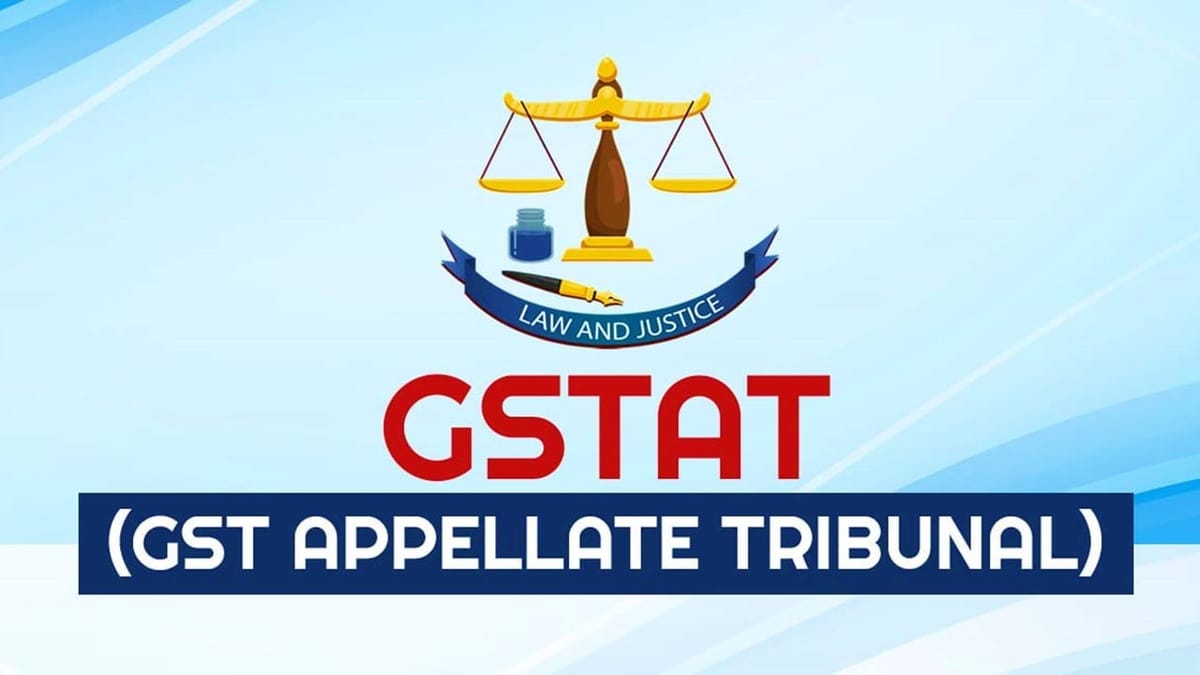Lawyers applauded GST Council's approval on February 18 for formation of the GST Appellate Tribunal, arguing that the tribunal will improve the ease of doing business in country.
Reetu | Feb 21, 2023 |

GST appellate tribunal to reduce pending cases and enable faster resolution; Also enhance EODB
Lawyers applauded the Goods and Services Tax (GST) Council’s approval on February 18 for the formation of the GST Appellate Tribunal (GSTAT), arguing that the tribunal will improve the ease of doing business in the country.
Lawyers emphasise that because the tribunal would have a bench in each state, it will ensure lesser pendency and faster disposition of disputes, while also emphasising that tribunals will clarify the rules of GST law, reducing the opportunity for future litigation.
While the tribunal is likely to receive a large number of cases in the immediate future, this number is likely to decrease in the long term as the tribunal begins to clarify the law.
Because the tribunal has yet to be created, those wishing to pursue GST-related litigation in the courts are filing writ petitions against official orders in the high courts.
The formation of the tribunal will result in a reduction in GST-related writ petitions in high courts across the country.
Despite the fact that the GST Act was introduced in the country in 2017, a specialised GST tribunal is not likely to be constituted until 2023.
The GSTAT is the successor to the Customs Excise Service Tax Appellate Tribunal (CESTAT) and State VAT tribunals, as GST replaced central excise, service tax, additional customs duty, and state-level value-added tax.
When the department files a claim against a GST payer, the latter can challenge the claim at several levels, beginning with the Adjudicating Officer (called as a “property officer” in GST legislation) and ending with the Supreme Court. If the Adjudicating Officer issues an unfavourable order, the taxpayer may appeal to the Appellate Authority (Commissioner of Appeals); the order of the appellate authority is appealable in the tribunal.
The tribunal’s decision can be challenged in the high court, and then in the Supreme Court.
GST-related lawsuits may take more than a year to resolve in the absence of a tribunal. But, after the tribunal is established, taxpayers may choose not to go to the high courts if the disagreement is resolved by the tribunal.
GSTAT will have benches in each state, which is a sharp contrast to the government’s approach on CESTAT, which has nine benches across the country. CESTAT has frequently been chastised for its delayed case disposition and enormous backlog.
CESTAT had over 78,000 cases pending across its nine benches as of November 2022. While numerous factors contribute to the pendency, one of the most significant is a lack of benches in several states. For example, while CESTAT has three benches in the five southern states, there are only three benches in the entire north.
Encourage ease of doing business:
Because GST is a tax on products and services, most firms are subject to it. When conflicts have remained unresolved for years due to the lack of a tribunal to interpret and adjudicate them, entrepreneurs find it difficult to conduct their firms.
“The establishment of the GST Appellate Tribunal is a tribute to the Government’s efforts in making India a business-friendly and desired destination for trade and commerce,” stated Suvigya Awasthy, Associate Partner at PSL Advocates & Solicitors.
He does, however, state that the government must ensure that GSTAT does not face bureaucratic challenges such as excessive government meddling or administrative issues such as a lack of resources and equipment. “It is hoped that the GST Appellate Tribunal will not encounter problems about a lack of members for adjudication and will have enough members to guarantee quick disposition of cases,” he said.
A positive step:
The news of the establishment of an Appellate Tribunal for GST is a positive step, according to Sanjeev Sachdeva, Partner, Luthra and Luthra Law Offices India. “This will go a long way towards resolving difficult matters and decreasing litigation,” he said.
“The decision to have state benches is commendable,” said Rohit Arora, Attorney, Tax and Commercial Law. The introduction of a state tribunal would give the plaintiff with a legal remedy within his state, which is a welcome move in that it would assist an individual in exercising his rights.”
Bring clarity in GST law:
All new legislation is bound to result in a torrent of litigation in the courts, either contesting the constitutional legality of specific sections of law or disputing the interpretation of the provisions of law.
While the high courts and the Supreme Court can resolve questions about the constitutional legality of the law, interpreting sections of the law may become a time-consuming process, especially given the current backlog in the courts. As a result, the tribunal is responsible with interpreting the requirements of the legislation. According to Charanya Lakshmikumaran, Partner at tax company Lakshmikumaran and Sridharan, GSTAT will replace not only CESTAT but also the several State Value Added Tax Tribunals that exist in each state.
Cost-effective lawsuit for taxpayers:
Taxpayers will benefit from GSTAT because submitting appeals at the high court was a time-consuming and costly process. It is currently envisaged that this will be cost-effective for taxpayers.
Allows for various perspectives on the same issues:
The only difficulty we perceive is that different state tribunals have opposing viewpoints on comparable topics, which adds to the problem’s complexity. We hope that the establishment of a centralised Principal Bench in New Delhi will help to resolve such disagreements.
In case of any Doubt regarding Membership you can mail us at contact@studycafe.in
Join Studycafe's WhatsApp Group or Telegram Channel for Latest Updates on Government Job, Sarkari Naukri, Private Jobs, Income Tax, GST, Companies Act, Judgements and CA, CS, ICWA, and MUCH MORE!"